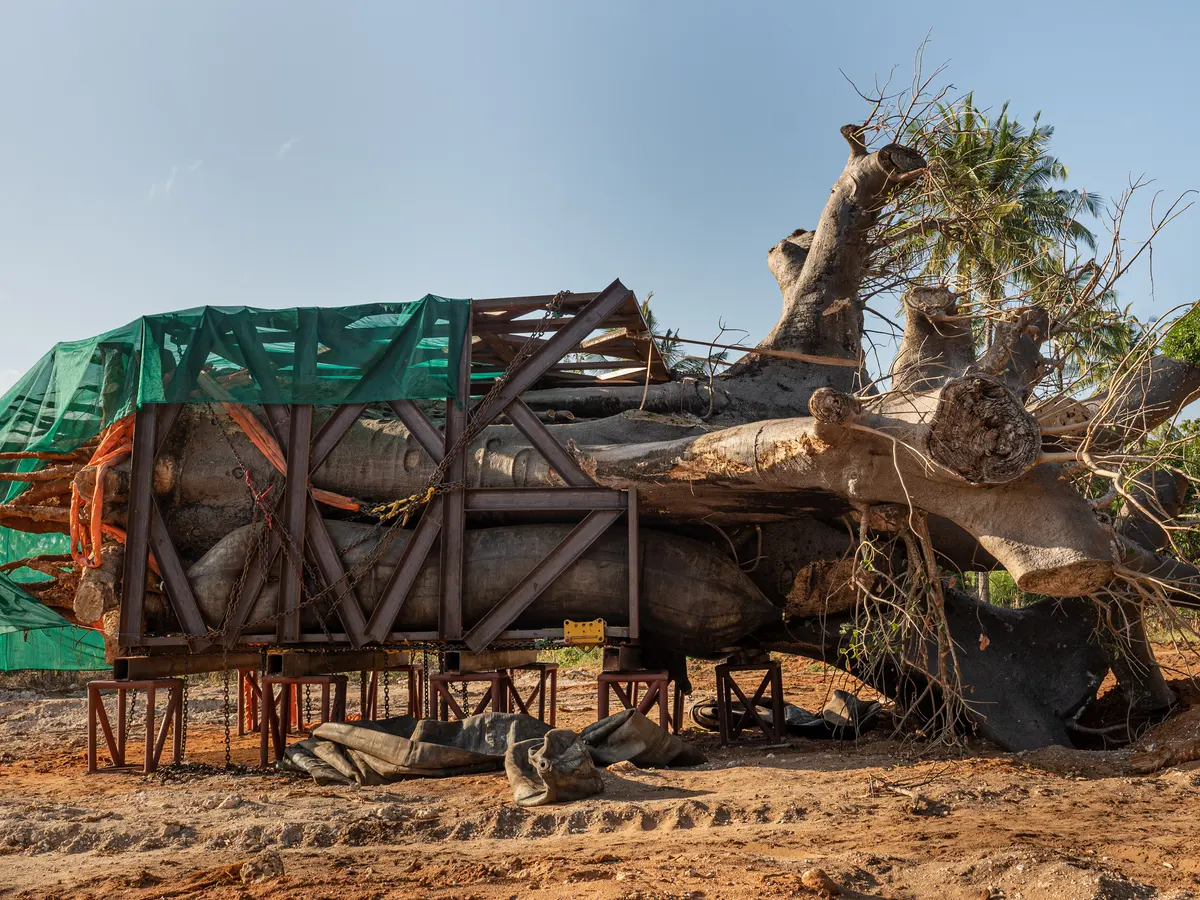Kenya is facing a new environmental threat as the country’s baobab trees are being uprooted with increasing frequency. The baobab tree, native to Africa, is commonly found in sub-Saharan Africa, particularly in dry areas. Scientists believe this ancient species plays a role in fighting climate change, as it is able to store large volumes of water and survive in different environmental conditions.
The recent discovery of old baobab trees being uprooted and prepared for export has caused a public outcry. While some farmers have been cutting down the trees as they take up too much space in their small farms, others are looking to capitalize on the international recognition of the baobab fruit as a “super food”.
Despite Kenya’s laws requiring permission to uproot baobab trees, the recent trend of illegal deforestation has been linked to the growing demand for the fruit. This has resulted in a decrease in the population of the trees, which could have serious implications for the environment.
Recent research has shown that 2,000-year-old baobab trees are suddenly dying, and new trees won’t have a chance either. This is due to the effects of climate change, which is creating more extreme weather conditions. In order to prevent the demise of the baobab tree, environmental experts are urging the Kenyan government to take action.
Duncan Omwami, an environmental research fellow at Kenyatta University, believes that the baobab tree is the best tree that can help combat the effects of climate change. He is urging the government to invest in baobab conservation efforts and to provide incentives to farmers to keep their baobab trees.
Additionally, Amisha Patel, founder of O’bao, believes that the baobab fruit can be used as a nutritional supplement for traditional foods during periods of drought. She is urging the government to create awareness about the benefits of the baobab fruit and to encourage farmers



